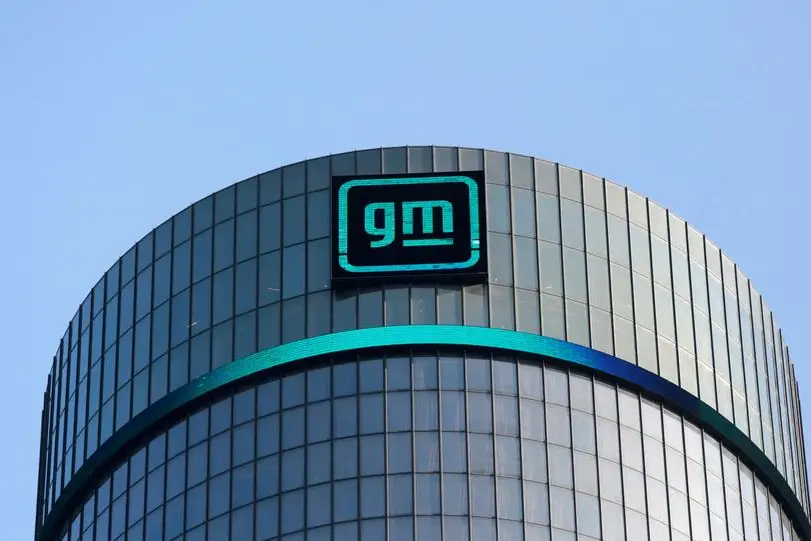PHOTO
DETROIT - The chief executives of GM and Ford blasted United Auto Workers leaders on Friday, and UAW chief Shawn Fain responded in kind, hours after the union escalated the strike that is now in its third week.
Fain on Friday expanded the first-ever simultaneous strike against the Detroit Three, ordering workers to walk off the job at Ford's Chicago assembly plant and GM's Lansing, Michigan, assembly plant. He said Stellantis was spared after last-minute concessions by the Chrysler parent.
"It’s clear that there is no real intent to get to an agreement," GM CEO Mary Barra said late Friday, while Ford CEO Jim Farley said the union was holding a deal "hostage" over a dispute over future electric vehicle battery plants. The UAW responded on social media that neither CEO had attended bargaining this week.
“And yet, Barra and Farley made a combined $50 million dollars last year,” the union added.
The harshly worded personal statements showed increasing frustration with the pace of negotiations that are entering their third week. Farley said the UAW demands "could have a devastating impact on our business." He said the dispute centered around wages and benefits at new electric vehicle battery plants that have yet to start production.
“I don’t know why Jim Farley is lying about the state of negotiations," Fain said in response. "It could be because he failed to show up for bargaining this week, as he has for most of the past 10 weeks."
The union and the companies remain far apart on key economic issues and the CEO statements suggested they are not close to resolving many sticking points. Fain has stuck with a demand for 40% pay hikes over a four-year contract, a position supported this week by President Joe Biden. The companies have offered pay hikes of about 20%.
Barra accused Fain of dragging workers into a long, unnecessary strike and trying to "make history for himself" with the action. "Jeopardizing our future is something I will not do," Barra added.
The union continued its deliberate approach to the strike, choosing to walk out of just two additional assembly plants - rather than the sweeping impact of a walkout at the Detroit Three's most profitable plants that make pickup trucks.
In addition, the union is trying to conserve a limited strike fund that may be strained by additional strikes at Mack Trucks facilities and Detroit-area casinos that are also represented by the UAW.
"The strike costs the union a lot of money. It's $500 per worker per week. With the additional 7,000 (workers walking out) we are talking about over $12 million a week out of the strike fund," said Sam Fiorani, vice president of global vehicle forecasting at AutoForecast Solutions.
Fain said differences with Ford include retirement benefits and job guarantees.
The total number on picket lines has grown to 25,000, or about 17% of the union's members at the three automakers.
Rather than the hammer blow of a mass walkout it has wielded historically, the UAW is strategically playing the companies against each other, using reprieves from expansion of work stoppages as encouragement with different automakers the last two weeks.
Workers on Friday walked out of the Ford assembly plant in Chicago that builds the Ford Explorer and Lincoln Aviator SUVs, as well as the GM plant in Lansing that makes the Chevy Traverse and Buick Enclave SUVs.
Farley said the union's decision to expand walkouts at Ford threatened thousands of supplier jobs. He added many suppliers are "on a knife's edge" because a more than two-week strike at the Michigan factory that builds Bronco SUVs and Ranger trucks.
Farley said the UAW chief was holding a deal hostage to the fate of electric vehicle battery plants, including three that Ford is building with outside companies and one it has planned to own itself in Marshall, Michigan. The UAW wants those workers represented by the union and paid the highest-tier wages.
Ford is now reconsidering the size and scope of the $3.5 billion Marshall battery plant in part because of uncertainty over labor costs, Farley said.
Stellantis also blamed the UAW for the failure to reach a new contract. GM said in an earlier email to employees that it still has not received a comprehensive counteroffer to its Sept. 21 proposal. "Calling more strikes is just for the headlines, not real progress," the company said.
Stellantis, which was spared an additional walkout, said: "We have made progress in our discussions, but gaps remain. We are committed to continue working through these issues in an expeditious manner."
Fain said that moments before he was due to address members at 10 a.m. EDT (1400 GMT), Stellantis made significant changes in its proposal. That led to a half-hour delay in his announcement, and spared Stellantis from escalation.
Fain cited progress with Stellantis around cost of living allowance payments, as well as right to strike over product commitments and plant closures. Talks continue at all three companies.
Arthur Wheaton, director of labor studies at Cornell University, said: "What Shawn Fain wanted is a tit for tat: If you're good for us at the table, we won't mess with you. If you're bad with us at the table, we will escalate the strike."
The UAW has ratcheted up pressure over the past two weeks. Workers went on strike on Sept. 15 at one plant each from GM, Ford and Stellantis. The union escalated on Sept. 22, when workers walked off the job at GM and Stellantis distribution facilities in 20 states nationwide.
UAW workers also are threatening to walk off the job at heavy truck maker Mack Trucks on Sunday, and at three Detroit casinos. A UAW strike has shut down a plant that builds axles for Mercedes-Benz's Alabama vehicle factory.
(Reporting by David Shepardson and Joseph White; additional reporting by Ben Klayman and Abhirup Roy, Bianca Flowers, Shivansh Tiwary, Abhijith G and Peter Henderson; editing by Nick Zieminski, David Gregorio and Jonathan Oatis)





















